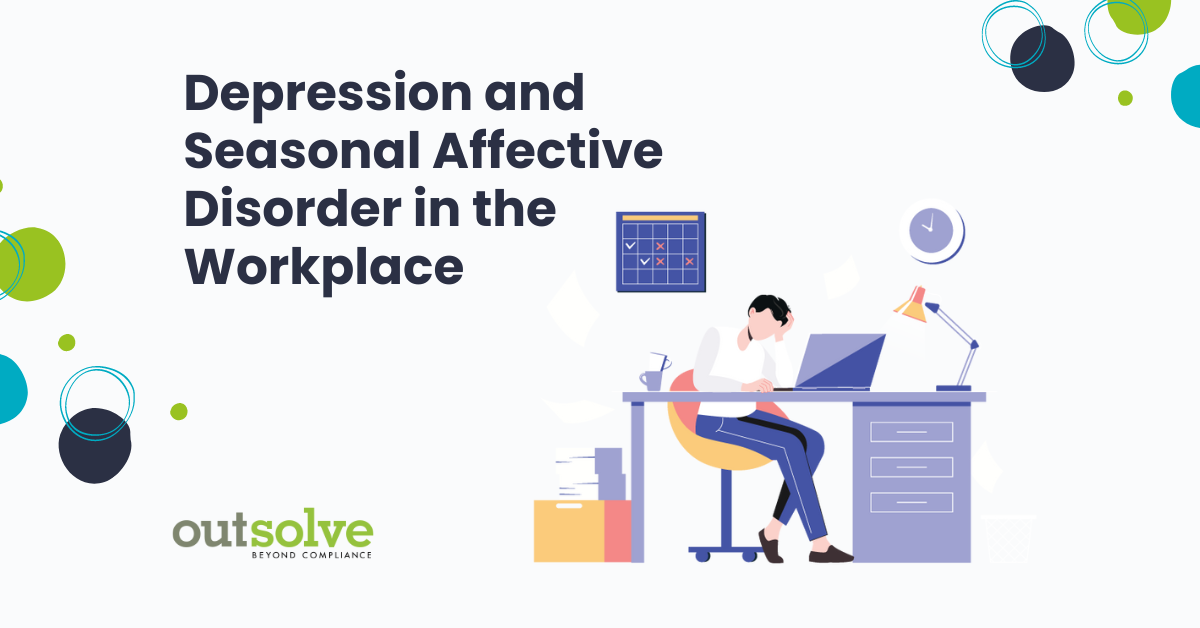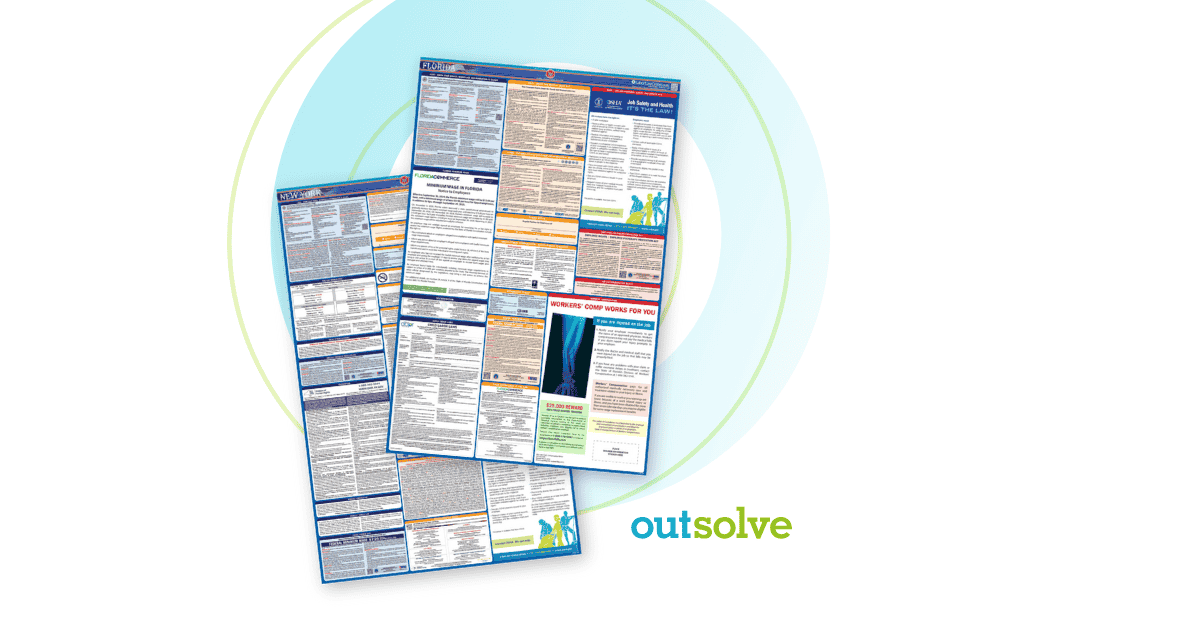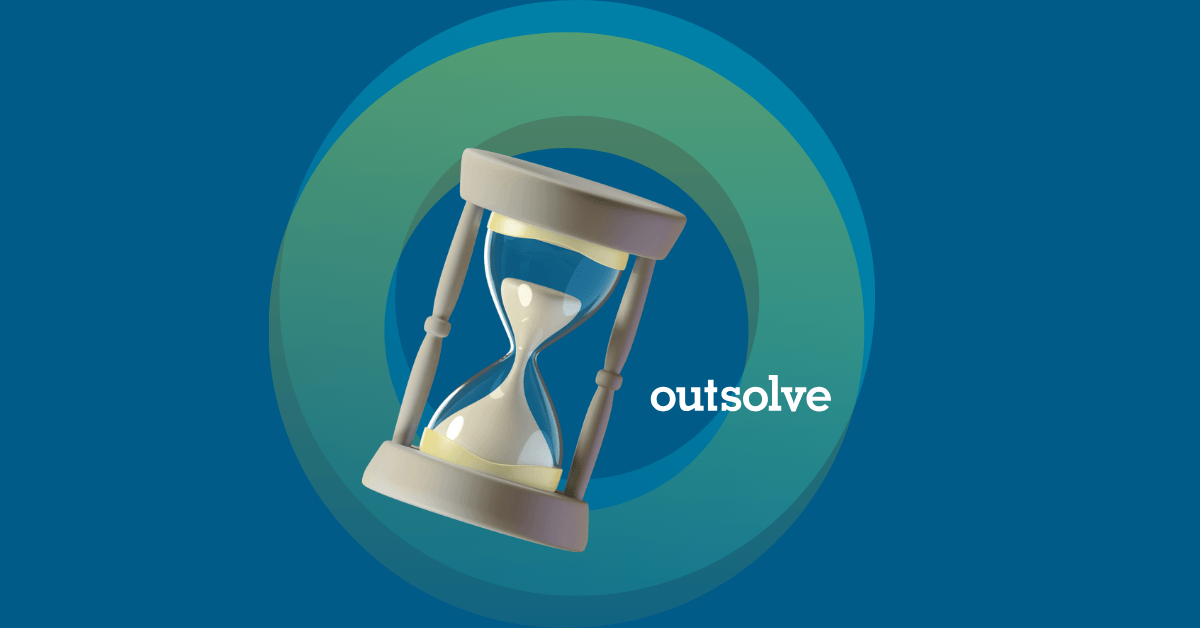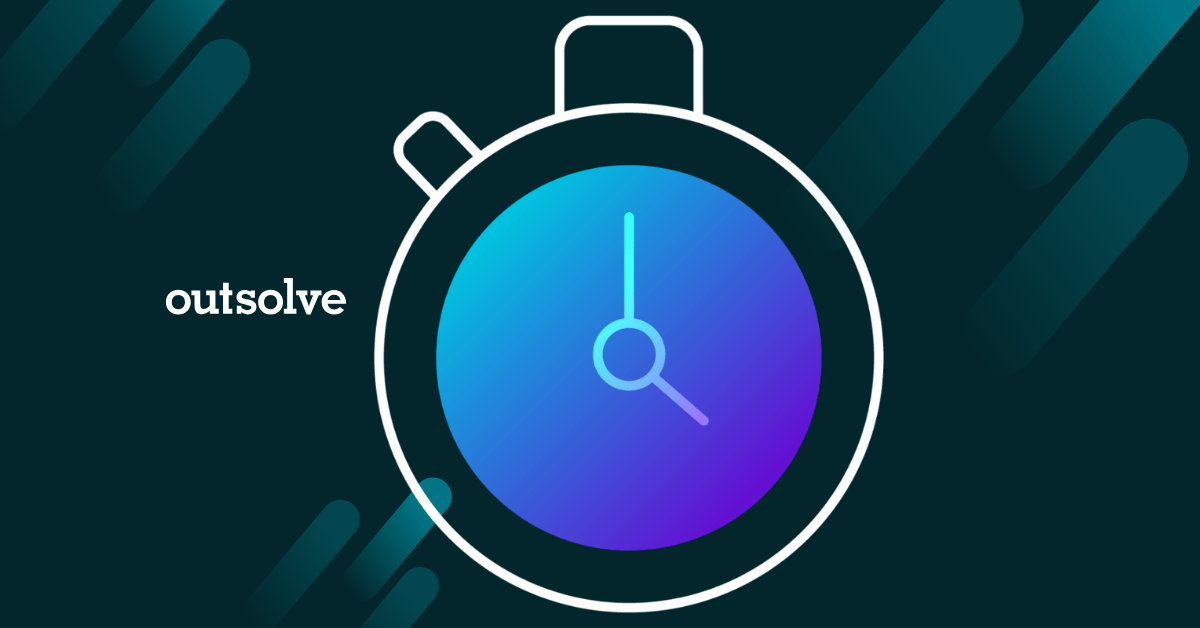2 min read
Depression and Seasonal Affective Disorder in the Workplace
 Toni Ahl
:
Dec 12, 2023 10:13:09 AM
Toni Ahl
:
Dec 12, 2023 10:13:09 AM

OutSolve’s EEO colleague, Toni Ahl, is an occasional contributor to our blog. The views, thoughts, and opinions expressed in this article belong solely to Toni and do not necessarily reflect the viewpoint of OutSolve or its employees.
Although this time of the year is joyous for some people, for others it is anything but. There are many reasons why this season may be hard for some people. Stress due to unrealistic expectations may affect anyone. It is probable that we may experience anxiety about some part of the holidays. However, the holidays may be particularly hard for those who are substantially limited in their daily activities due to depression.
The Americans with Disabilities Act of 1990, as amended, (ADA) defines a disability as a physical or mental impairment that substantially limits one or more major life activities. Many disabilities, particularly mental impairments, are not observable. There is still some stigma associated with disclosing a mental disability. Therefore, many people do not request reasonable accommodation for mental disabilities.
It is not uncommon to hear someone say they are depressed, but they may not be talking about limitations in major life activities due to their depression. It may just be a fleeting feeling. For those individuals who experience depression, they may be experiencing difficulties with sleeping, eating or interacting with others just to name a few. Disabilities, including depression, affect each individual differently. If the person is substantially limited in one or more major activities, they may be entitled to a reasonable accommodation at work. It may necessary for supervisors and managers to recognize that an employee is struggling especially if a mental disability is involved.
So, what should a supervisor or manager do? We know they should not ask the employee if they have a disability that is affecting their performance. They may say something like, “I have noticed you seem to be having a problem performing your job duties. Is there something that can be done to help you?” By asking this type of question, the door is open for the employee to enter into an interactive process with the employer to determine whether there is a reasonable accommodation that can be instituted. And, remember that reasonable accommodation is an affirmative duty for employers under the ADA.
Seasonal Affective Disorder (SAD) is not necessarily related to the holidays but most often happens during the winter. At this time of the year, there is less daylight. Lots of people go to work in the morning when it is dark and don’t return home until after it’s dark. Winter in many parts of the country means grey and gloomy days. The lack of sunlight can have physical effects on people who have SAD. Depending on the effects, and if the person is substantially limited in any life activities due to the condition, the employee may be eligible for a reasonable accommodation even though the condition may be episodic. The ADA was amended in 2008 to include disabilities that are episodic. If the condition is active and meets the definition of a disability, employers should take into account its effects and engage in an interactive process with the employee. This allows the employee to communicate their need for accommodations.
I hope that we can all be aware of the people around us and be considerate of them and their dispositions. Have a wonderful holiday season and feel free to reach out if you have any questions about the ADA. I may be reached at eeoadvantage@gmail.com or (502) 553-7648. Until next year...
President at EEO Advantage, LLC
Recent Posts
Related Posts

The Ultimate Guide to Multi-State Labor Law Posters
Human Resources professionals understand how important and challenging it can be to remain updated and compliant with labor laws. This is especially...

Countdown: Final Days of the 90-Day Safe Harbor Period for AAPs
April is here and with that comes the end of the 90-day safe harbor period for federal contractors complying with EO 11246. As April 21, 2025,...

What Triggers an I-9 Audit? Key Factors You Should Know
Verifying proper identity and work authorization documentation for every employee is a crucial HR compliance function - not just for a company’s...


